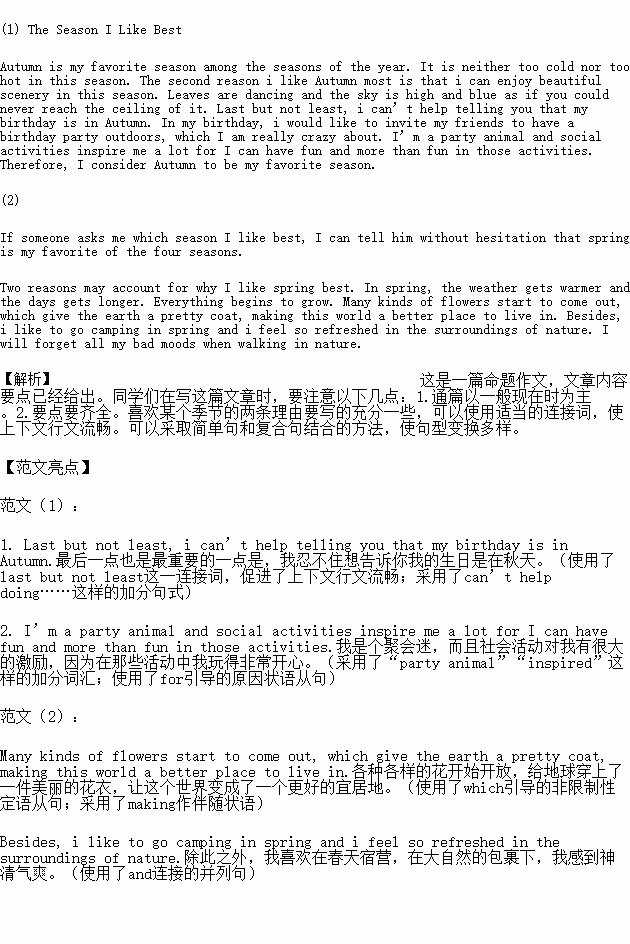题目内容
某中学生英文报正举办“The Season I Like Best” 的征文活动,请用英文写一篇短文投稿,内容应包括:
1.你最喜欢的季节;
2.你喜欢该季节的理由(如:气候、景色、活动、感受...)。
注意:
1.词数100左右;
2.题目已为你写好;
3.行文连贯,语篇完整。
____________________________________________________________________________________________
____________________________________________________________________________________________
____________________________________________________________________________________________
____________________________________________________________________________________________
____________________________________________________________________________________________
____________________________________________________________________________________________
____________________________________________________________________________________________
_____________________________________________________________________
 阅读快车系列答案
阅读快车系列答案

 , and even my garbage cans.
, and even my garbage cans.